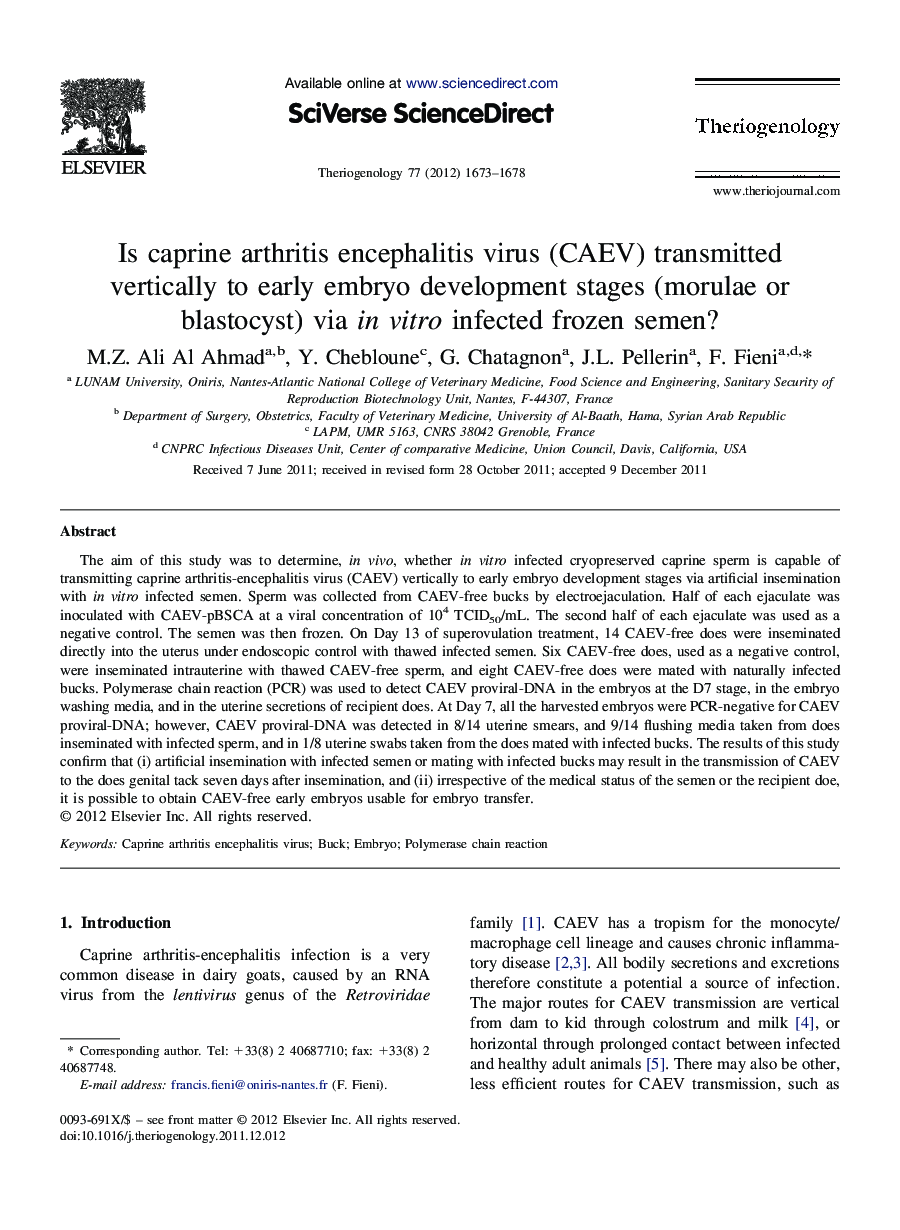| Article ID | Journal | Published Year | Pages | File Type |
|---|---|---|---|---|
| 10892923 | Theriogenology | 2012 | 6 Pages |
Abstract
The aim of this study was to determine, in vivo, whether in vitro infected cryopreserved caprine sperm is capable of transmitting caprine arthritis-encephalitis virus (CAEV) vertically to early embryo development stages via artificial insemination with in vitro infected semen. Sperm was collected from CAEV-free bucks by electroejaculation. Half of each ejaculate was inoculated with CAEV-pBSCA at a viral concentration of 104 TCID50/mL. The second half of each ejaculate was used as a negative control. The semen was then frozen. On Day 13 of superovulation treatment, 14 CAEV-free does were inseminated directly into the uterus under endoscopic control with thawed infected semen. Six CAEV-free does, used as a negative control, were inseminated intrauterine with thawed CAEV-free sperm, and eight CAEV-free does were mated with naturally infected bucks. Polymerase chain reaction (PCR) was used to detect CAEV proviral-DNA in the embryos at the D7 stage, in the embryo washing media, and in the uterine secretions of recipient does. At Day 7, all the harvested embryos were PCR-negative for CAEV proviral-DNA; however, CAEV proviral-DNA was detected in 8/14 uterine smears, and 9/14 flushing media taken from does inseminated with infected sperm, and in 1/8 uterine swabs taken from the does mated with infected bucks. The results of this study confirm that (i) artificial insemination with infected semen or mating with infected bucks may result in the transmission of CAEV to the does genital tack seven days after insemination, and (ii) irrespective of the medical status of the semen or the recipient doe, it is possible to obtain CAEV-free early embryos usable for embryo transfer.
Related Topics
Life Sciences
Agricultural and Biological Sciences
Animal Science and Zoology
Authors
M.Z. Ali Al Ahmad, Y. Chebloune, G. Chatagnon, J.L. Pellerin, F. Fieni,
